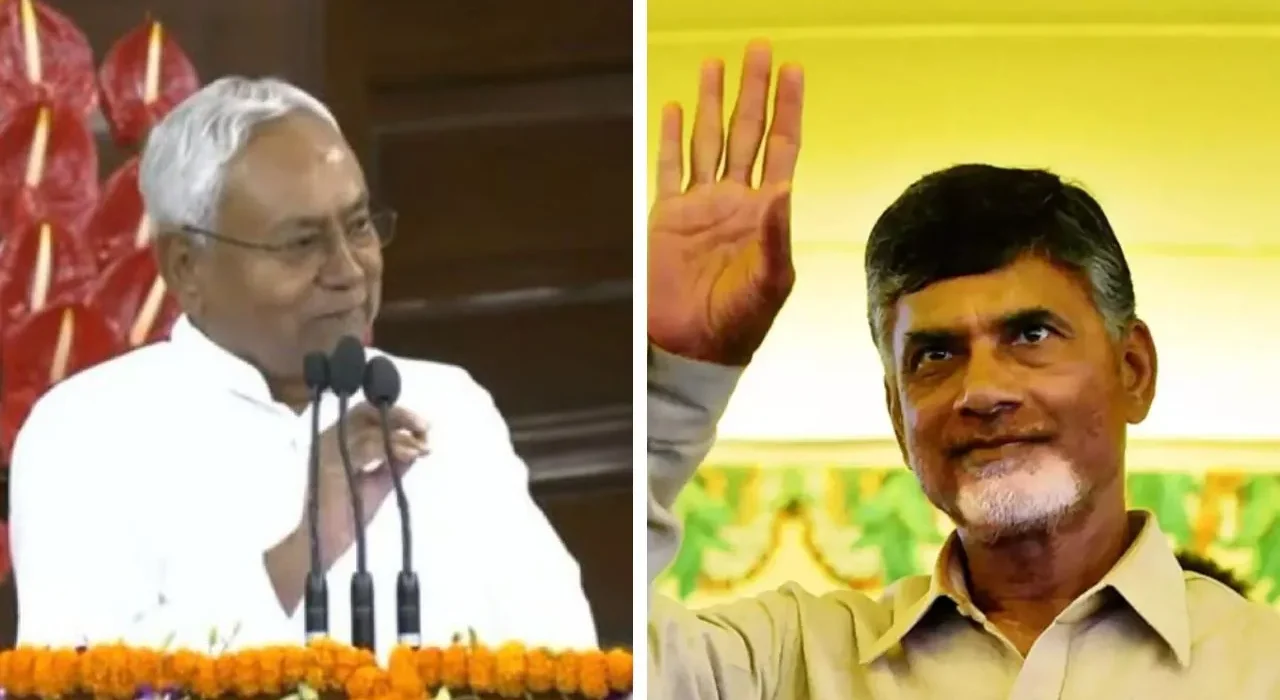On Thursday August 8 NDA allies JD(U) and TDP voiced their support for the Waqf (Amendment) Bill in the Lok Sabha. They said that the bill is designed to enhance transparency in Waqf Board operations and is not intended to interfere with religious institutions particularly mosques. Janata Dal (United) leader and Union Minister Rajiv Ranjan Singh ‘Lalan’ was firm in his statement that the bill is not anti-Muslim.
Clarifying Misconceptions
Rajiv Ranjan Singh ‘Lalan’ took a strong stance in defending the bill and he questioned the claims made by some members who suggested that the amendment to the Waqf Board law was anti-Muslim. “How is it anti-Muslim?” he asked, dismissing such concerns. He further explained that the bill does not aim to meddle with mosques but is instead focused on making Waqf Board operations more transparent. He emphasized that any institution established through law like the Waqf Board has the potential to become autocratic. Therefore it is within the government’s rights to introduce laws to ensure transparency.
Addressing Concerns and Seeking Clarity
Singh also criticized the opposition for spreading rumors and creating unnecessary divides. He drew parallels to historical events by asking,”Who killed thousands of Sikhs?”—a reference to the 1984 anti-Sikh riots to highlight the need for justice and transparency. Singh concluded by insisting that the bill is essential for bringing transparency to Waqf Board operations.
TDP MP GM Harish Balayogi expressed his party’s conditional support for the Waqf (Amendment) Bill. He acknowledged the government’s intention behind the bill and emphasized the need to protect the purpose of donors. Balayogi mentioned that if the bill is sent to a Parliamentary panel for further examination then his party would not oppose it.
Marginalized Groups support Waqf bill
Balayogi further highlighted the potential benefits of the bill for marginalized communities particularly poor Muslims and women. He stated that the registration process proposed in the bill would bring transparency and protect these groups. However he also expressed his willingness to support further consultation if it helps clear misconceptions and educate people about the bill’s purpose.
The Waqf (Amendment) Bill proposes changes to the existing Waqf Act of 1995. These changes include ensuring the representation of Muslim women and non-Muslims on Waqf Boards. The bill also aims to rename the act as the Unified Waqf Management, Empowerment, Efficiency and Development Act of 1995.
Also Read: Muhammad Yunus Becomes the New Prime Minister of Bangladesh
Opposition and Criticism
Despite support from some parties, the Waqf (Amendment) Bill faced strong opposition. Congress led the charge arguing that the bill is draconian and an attack on religious freedom and the federal system. Congress’s KC Venugopal and Samajwadi Party leader Akhilesh Yadav voiced their concerns about including non-Muslims on Waqf Boards. They argued that other religious bodies do not include members from outside their community, and questioned the necessity of this provision.
Samajwadi Party MP Mohibbullah expressed fears that the bill could lead to long-term negative consequences for the Muslim community. He described it as interference with religion. Akhilesh Yadav went further alleging that the amendments were a guise for selling off Waqf Board lands.
Who Support the Waqf Bill?
Union Minority Affairs Minister Kiren Rijiju defended the Waqf (Amendment) as well as parties in support with the Waqf Bill by arguing that the government had to introduce these amendments because previous governments failed to address the issues within the Waqf Board system. Rijiju claimed that the bill would provide justice to ordinary Muslims and bring transparency to the Waqf Board’s operations. He also suggested that some opposition leaders privately admitted that Waqf Boards had become dominated by powerful individuals which further justifying the need for reform.
Also Read:

1 Comment